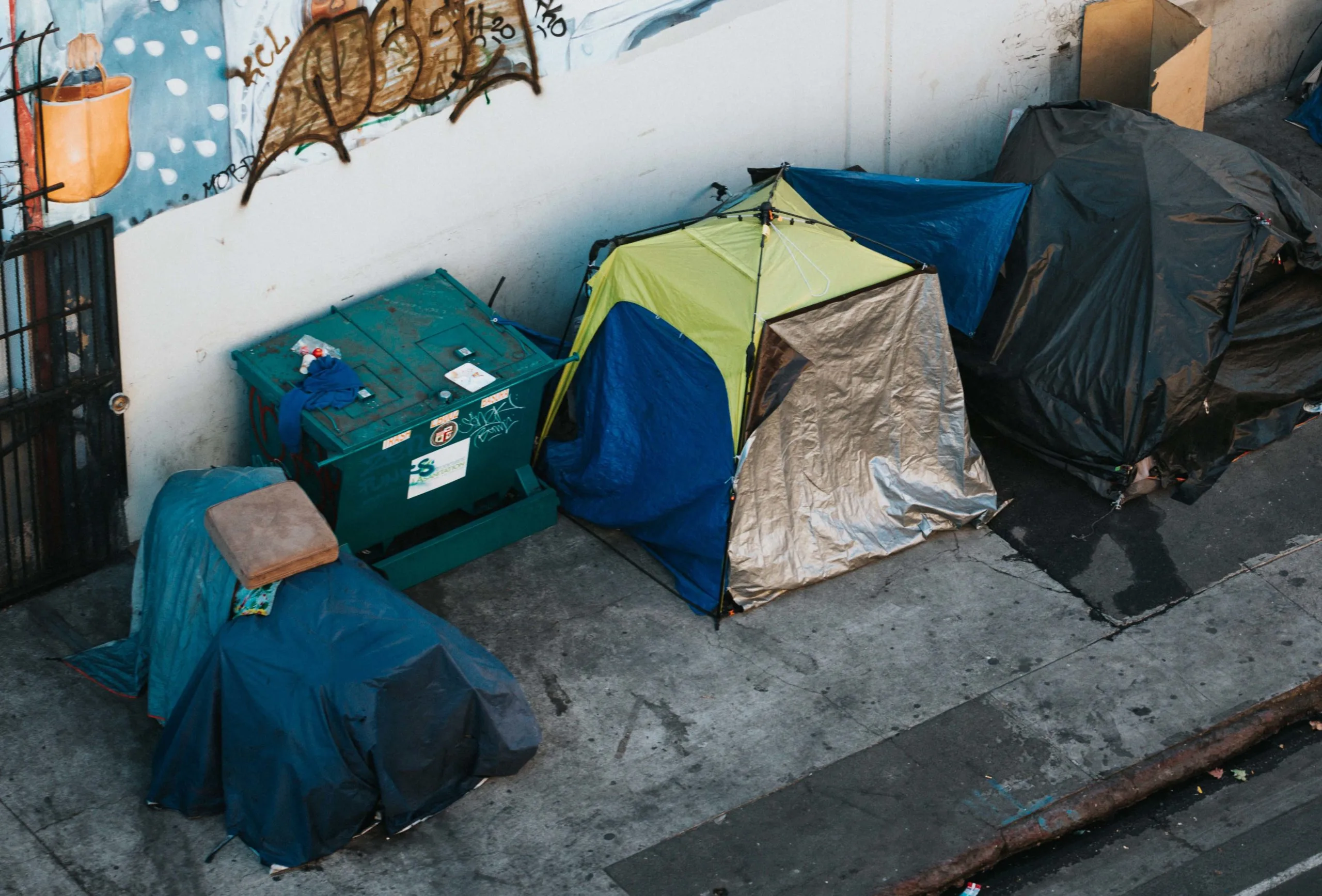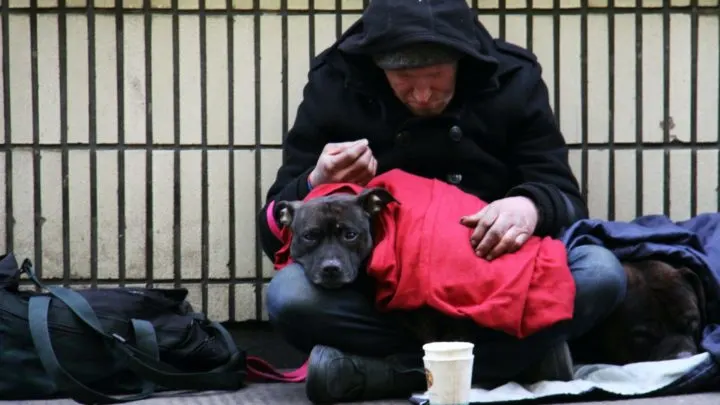If you find yourself without a home, you might be asking yourself: how can I find homeless shelters near me?
Whether it’s temporary or you’ve been homeless for months, there are a variety of tools and resources that can help you find a nearby homeless shelter to help get you on your feet. While resources vary widely between cities and states, we can help you in the process of searching for homeless shelters in your area.
In this article, we’ll discuss homelessness in the United States, and a variety of resources to answer your question: how do I find homeless shelters near me?
Homelessness in the United States
Before we jump into our resources for how to find homeless shelters, let’s discuss some important context on homelessness in the United States.
Every state in the U.S. struggles with homelessness, but the challenges are particularly acute in large cities — especially in New York City and Los Angeles. Large cities, as a result, tend to have more resources for people experiencing homelessness. Keep this in mind as we begin discussing some of the resources to help you find nearby homeless shelters.
Homelessness has continued to grow in the U.S. in recent years. Between 2016 and 2020, the number of homeless people in the United States grew about 6 percent and has increased each year for the past four years. Many of these people — about 39 percent — are living without shelters, and about 1 in 5 are children, according to Security.org’s annual report on the state of homelessness.
There are many contributing factors and nuances behind homelessness, however, it’s important that people know they are not alone. There are many organizations doing good work to help homeless people throughout the U.S.
Homeless resources can vary
Another important note is that resources can vary not only on your location but also depending on what type of homelessness you’re experiencing. While some service providers may help any homeless person, some are oriented toward helping to experience long- or short-term homelessness. Keep that in mind as you’re searching for homeless shelters.
Despite common misunderstandings, there are four types of homelessness. These four forms of homelessness — episodic, transitional, chronic, and hidden — each have their own set of challenges and circumstances that resource providers must account for. Learn more about the four types of homelessness here.

Find Homeless Shelters Near Me
Now that we have some important context, let’s look at how to find homeless shelters near you. A computer with an Internet connection, a phone, and a notepad will be helpful as you go through the process.
Understand that you might bounce around a few times between different resources in your search. Some providers merely connect people with homeless shelters while others may provide shelter themselves. Regardless, have your personal information available for reference when you communicate with people. Try to keep a log of who you speak with, when, and what was discussed.
The U.S. Department of Housing and Urban Development
The United States Department of Urban Housing and Development, more commonly referred to as HUD, offers a variety of information on how to find homeless shelters and other resources. Check out this resource page from HUD if you’re experiencing or at-risk of experiencing homelessness.
Your Local Continuum of Care program
Many counties in the United States have a Continuum of Care (CoC) program that serve as a bridge to resources for people experiencing homelessness. You can locate your area’s CoC via this page, or by performing an internet search of “your city’s name” and “continuum of care.”
Your CoC will likely manage other alternatives to homeless shelters or have connections to shelters in the area. CoC programs often manage such programs as public housing and Housing Choice Vouchers (formerly known as Section 8) which may be suitable alternatives for your housing crisis.

The National Alliance to End Homelessness
The National Alliance to End Homelessness is arguably one of the best resources for people that are experiencing homelessness in the United States. While it doesn’t provide housing or case management services, the NAEH provinces a vast array of resources, a learning center, other data services to help people experiencing homelessness.
Call 2-1-1 for homeless shelters
One resource to quickly find homeless shelters in your area is by calling your local 2-1-1 hotline.
The 2-1-1 hotline network was created in the year 2000 and responds to more than 14 million requests each year by connecting people to local experts. In total, 2-1-1 has more than 200 agencies across the United States that offer compassionate, highly-trained community specialists with information on nearby resources, from homeless shelters to mental health services.
Simply call 2-1-1 to speak with an operator about your search for a homeless shelter. You also can visit 211’s online directory, type in your zip code and browse various resources for their contact information.
The Salvation Army
Known for its second-hand stores and intrepid bell-ringers outside grocery stores, the Salvation Army offers a host of services — from job training and food pantries to LGBTQ support — for people experiencing homelessness on a short- or long-term basis. The charitable non-profit organization offers a search tool to find shelters that you can access here.
Shelter Listings
ShelterListings.org offers a comprehensive, state-by-state list of homeless shelter resources around the United States. Shelter Listing provides resources in all 50 states, including listings for homeless shelters, supportive housing, housing for low-income folks, halfway housing, transitional housing, day shelters, and low-cost housing.
Non-shelter options for homelessness
If you’re in a housing crisis, there are a number of alternatives to a homeless shelter. Among these low-income housing options include public housing and the Housing Choice Voucher program. Both are in part managed by HUD as well as local housing authorities.
Public housing is a form of rental housing in which the property is owned outright or partially owned by a city, county, state, or federal government. In total, there are about 970,000 families living in public housing units that are managed by about 3,300 local housing authorities.
The Housing Choice Voucher program, formerly known as Section 8, collaborates with local public housing agencies to help low-income families, the elderly, and disabled people afford safe and sanitary housing in the private marketplace. If the vouchers are provided directly to families or individuals, participants can choose any housing that meets the requirements of the program, including single-family homes, townhouses, and apartments.

Qualifying for public housing or Housing Choice
The qualifications to enter into public housing or the Housing Choice Voucher program varies between cities and states.
The general criteria to qualify for low-income housing depends on your family status, income level, citizenship status, and eviction history. Whatever the case, if you’re seeking low-income housing, you’ll have to provide ample information to prove your qualifications.
To learn more about how to qualify for low-income housing options, check out this helpful article from Low Income Relief.
Other resources
If your city or town lacks a specific shelter or if you can’t find it, your next step is to find other providers or services in your area. The National Alliance to End Homelessness recommends that people start by seeking out their County Department of Human or Social Services, nearby churches, a social service non-profit, libraries, or a food pantry.
If you’re in need of food, please use this search tool to quickly find a local food bank. If you’re in need of medical assistance, please use this search tool to find a health center in your area.
In Conclusion
Finding a homeless shelter can be a challenging process. But while it can be difficult, there are many resources to help people find a temporary home to get back on their feet.
We hope through this article you’ve learned more about homelessness in the United States, and a variety of resources to answer the question of how do I find homeless shelters near me?


Kenneth
Saturday 29th of October 2022
I been homeless for 1year and 2 months me and my girlfriend she had housing but we stop paying the rent cause they didn't fix anything in the apartment mildew is all on the wall the wall caved and the whole floor was wet wet which caused a million nats my girl started having breathing problems me to but the apartment people did some crooked rental which they are stealing people money do we have a law suit
Catherine Marucci
Saturday 29th of October 2022
Hi Kenneth. Those sound like unsafe living conditions - https://lowincomerelief.com/what-is-considered-unsafe-living-conditions/ For legal advice, it may be worth contacting Legal Aid - https://lowincomerelief.com/legal-aid/